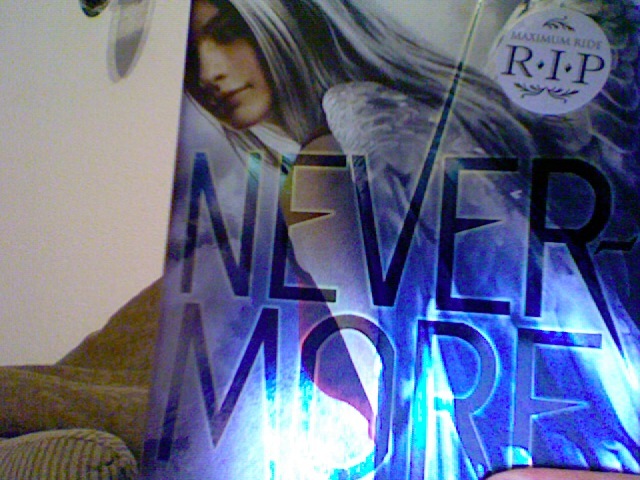I’ve folowed the series from start to finish now, which is tough when trying to keep up with so many series being launched each month in YA fiction. Part of it is because of Ally’s visit to our school when the series first started out, but part of it is that the series has stayed classy without resorting to too many trends or gimmicks. It’s been about spies and sisterhood, and that continued through to the end.
While there are many girl power moments in the book, I appreciated when Cammie realized that Zach had friends – that not every aspect of his life revolves around her. That’s been true of Cammie, which has been so refreshing. The books haven’t really been about getting the boy and, despite some fan complaints, Zach is not Cammie’s main protector. It’s all about the Gallagher Girls.
What’s great is seeing that tradition pass on to the younger girls of the academy. My students that were at Ally’s visit to our school have now graduated high school. They are now outside in the wide open world and, much like the Gallagher Girls, must decide what to do with the rest of their lives. One important transition is understanding the need to train up the next generation, to give back. Cammie matured throughout the series, no doubt about that, but matured in ways that matter. Again, I can’t stress enough how much I appreciated that the romance plotline was present but was not Cammie’s main hero journey.
The Circle of Cavan is still at it and the Gallagher Girls must stop chaos from erupting around the world. Having read the whole series from start to finish, it was pretty cool seeing details from the other five books show up, whether it was antagonists popping up again or Cammie reliving a moment from the first book but from a different perspective. I also appreciated the title. I know how much Ally struggled with following up I’d Tell You I Love You, but Then I’d Have to Kill You, but United We Spy is the perfect wrapping up of the series in both title and plot. The last three chapters read like a season finale of Alias, which is great because Ally has mentioned that Alias made her question what it would look like to train a whole school of spies. I could hear the theme music playing and then the fade to black as the credits roll.
Ally, nice job on the series. I know that you don’t need my approval, but it takes some skill to maintain a six book series and I’m glad that I was there to see the whole thing play out.


